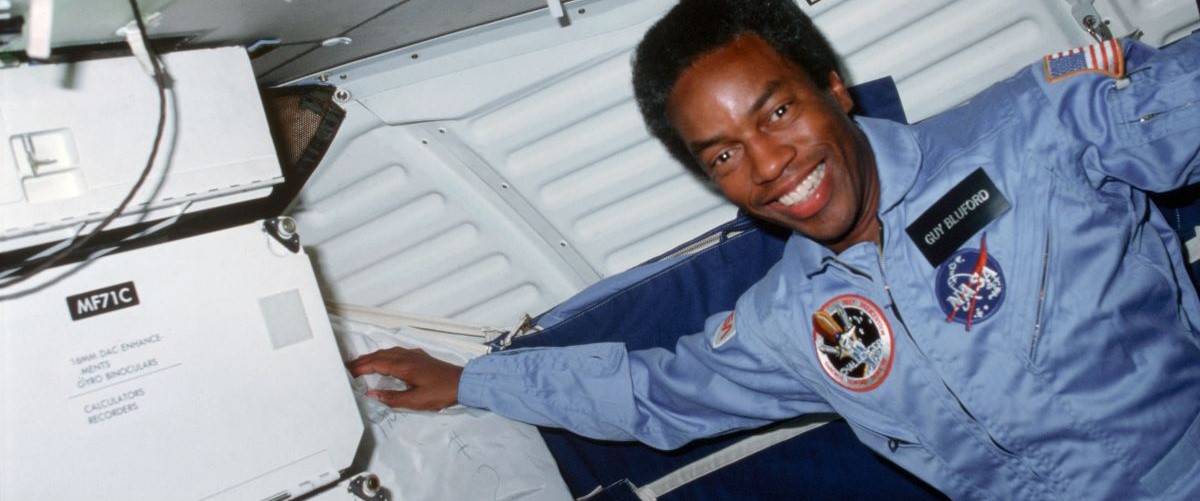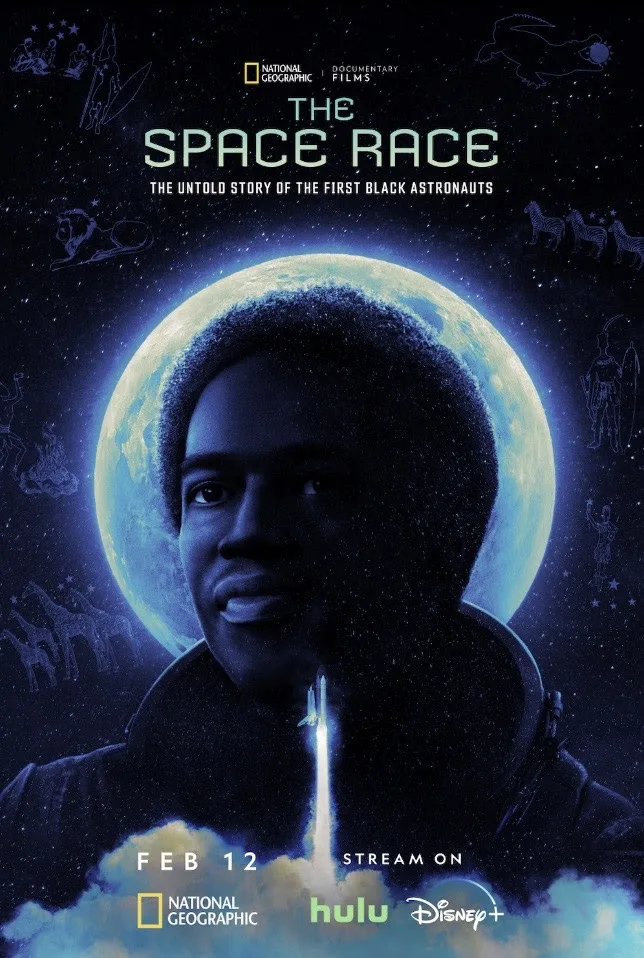When we look back at the Space Race, there’s an unmistakable sense of hope in the future, a sense of awe when considering the decades of advances that needed to happen to get a man on the moon. In the words of Neil Armstrong, “That’s one small step for man, one giant leap for mankind.” But that progress was not extended to all Americans at first. As Lisa Cortes and Diego Hurtado de Mendoza reveal in their new documentary, “The Space Race,” the road to progress had significant barriers to everyone not pale and male, and for the few Black astronauts at that time, they never had their chance to complete their mission.
Building off extensive interviews and research, “The Space Race” chronicles the parallel timelines of space exploration and the many fits and starts Black astronauts faced on the way. A surprising amount of former and would-be astronauts share their side of the story, the hurdles and isolation they faced behind closed doors and classified documents. The most moving interview is with Ed Dwight, a would-be astronaut who suffered prejudice from racist commanders — like when legendary test pilot Chuck Yeager told him to quit and give his spot to a white candidate or when he was forced to reunite with his ex-wife because being divorced would have been unacceptable — and outside pressure from Black organizations who called on him to speak out about injustice. Stuck in the unenviable position of fitting in with the military rank and file yet singled out for his race, Dwight got caught in the headwinds of shifting politics. He never made it out of earth’s atmosphere, but he’s just one of the many pioneers to share their story in Cortes and Hurtado de Mendoza’s film.
“The Space Race” occasionally ventures outside NASA for more informative context, like an excursion into the style and concept of Afro-futurism that I wish could have gone longer, but fits in mentions to Octavia Butler, Sun Ra, George Clinton and Parliament, and of course, Earth, Wind, and Fire, all of whom used futuristic space imagery years before a person of color made it to space. Nichelle Nichols, who played Captain Uhura on “Star Trek” gets a special mention for her work with NASA to recruit candidates from underrepresented backgrounds. One of these tangents away from the American history textbook even gives credit to the Russian space program, which sent an Afro Cuban cosmonaut to space three years before Americans sent a Black man. His name, Arnaldo Tamayo Méndez, was not celebrated in the States because he represented a “first” America could not claim for itself.
The real gem of this documentary are the incredible first person accounts from those who were there, like Dwight, and the first African American in space, Guy Bluford, the first African American pilot, Fred Gregory, future Administrator of NASA, Charlie Bolden, as well as the new generation of astronauts, like Victor Glover and Jessica Watkins, who are reckoning with the concept of progress in the era of George Floyd and connecting with their elder space statesmen and women. “The Space Race” bears some similarities to the movie “Hidden Figures” — shining a spotlight on important names from the space program for a new generation — but it makes a point to show that this work towards equality is still ongoing, that progress is not as easy as going up,up,up, and away and clocking in a “first.” While “The Space Race” addresses NASA’s shortcomings, it gives its audience a hope for a better future — even if we’re not there yet.
On Disney+ now.




















